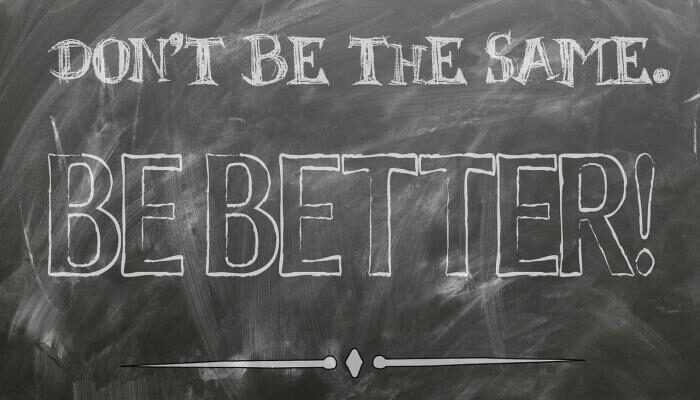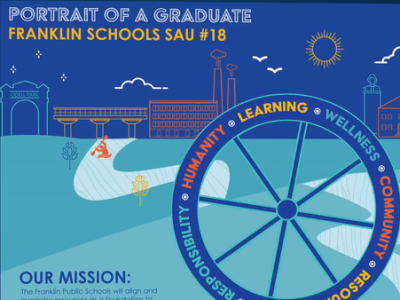Enabling Change
The Foundations of Next Generation Learning - Essential Resources
Topics

Next generation learning is all about everyone in the system—from students through teachers to policymakers—taking charge of their own learning, development, and work. That doesn’t happen by forcing change through mandates and compliance. It happens by creating the environment and the equity of opportunity for everyone in the system to do their best possible work.
NGLC’s Sarah Luchs describes the field base and results of the school models in the NGLC network, particularly the Regional Funds for Breakthrough Schools.
NGLC’s Sarah Luchs recently talked with the Michigan Virtual Learning Research Institute as part of the organization’s Multiple Viewpoints podcast series. She describes the research and field base that informs the design and results of the school models in the NGLC network, particularly the Regional Funds for Breakthrough Schools.
For more information about the work of the NGLC Regional Funds partner organizations, Sarah points us to two resources:
- Getting Smart about Regional Next-Gen School Design: This publication shares the stories of the Regional Funds efforts to nurture the interest in, design of, and commitment to next generation learning locally.
- Personalized Learning Podcast Series: Hear about the efforts of the Regional Funds through the voices of the partners themselves in this series produced by the Dell Foundation.
To understand the design of next generation learning school models, Sarah identifies these resources:
- Moving Towards Next Gen Learning: In this blog, NGLC’s Andy Calkins offers a landscape map of current reform efforts in the blended/competency-based/personalized learning space using four key dimensions of the Christensen Institute’s blended learning taxonomy.
- Next Generation Learning: The Pathway to Possibility: This white paper assembles and organizes the various aspects of designing, implementing, and enabling next generation learning at scale into six interdependent strategies. It also presents what next generation learning looks like from a student’s point of view.
- Personalized Learning School Design Attributes: This visual depicts important preconditions for effective personalized learning experiences and for models optimized for scale.
- Breakthrough Model Designs: Explore this collection of profiles of the school models in NGLC’s network or download the complete set.
To get a sense of the outcomes these schools might achieve for students, Sarah shares recent results from a few NGLC schools:
- USC Hybrid High, Los Angeles, CA: Early results from USC Hybrid High show gains on California’s Academic Performance Index (API), ACT scores, and NWEA’s MAP. The 90 point API growth in 2014 is nine times the average growth of comparable Los Angeles Unified School District high schools with similar starting points.
- Schools for the Future Detroit: This next gen learning school in Detroit posted record gains on ACT benchmark assessments. Students gained an average of 2.5 years across all four tested subjects including a remarkable 5.6 year gain on English Language Arts.
- Horry County Schools, Conway, SC: Overall, growth scores for district-wide middle school math and reading increased by an average of 7.3 percent.
Sarah also connects us to research supporting next generation learning strategies and the findings from a study of 62 personalized learning schools:
- The Search for Methods of Group Instruction as Effective as One-to-One Tutoring by Benjamin Bloom in Educational Leadership, 1984. The average student who receives one-to-one, mastery-based instruction performs at the same level as the top two percent of students who receive traditional group instruction.
- Continued Progress: Promising Evidence on Personalized Learning from the RAND Corporation, 2015. Student achievement growth in 62 personalized learning schools in mathematics and reading over two years exceeded that of a comparison group, overall and in a majority of schools. The lowest performing students made the greatest gains.
Evidence of Learning Project
NGLC is in the midst of collecting multiple measures of impact from NGLC schools themselves. While RAND measures growth in reading and math on one assessment, many grantees have developed a set of rigorous and robust methods to measure the impact of their innovations. The upcoming report will share some of the work of grantees in demonstrating and measuring impact in an effort to learn from next generation learning.
MyWays Learning
NGLC is also pulling together a research base and a complete toolbox for forward-leaning educators to develop a more rich and broad definition of student success, design deeper learning experiences, and gauge student progress through integrated assessment practices. Visit the beta site of the MyWays Toolset for more information and a preliminary set of tools available for pilot-testing. The resources will be refined, new tools will be added, and a summary of the research supporting the MyWays project will be provided later this spring.




